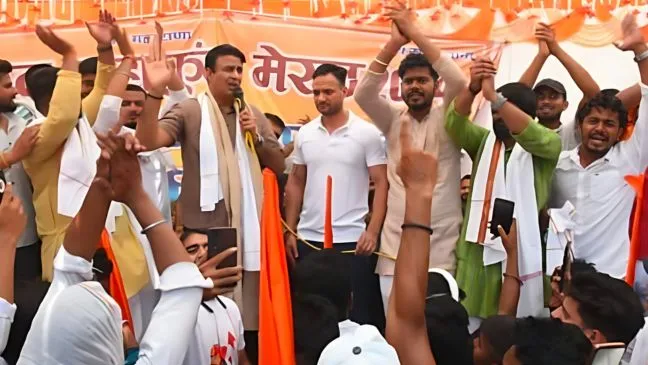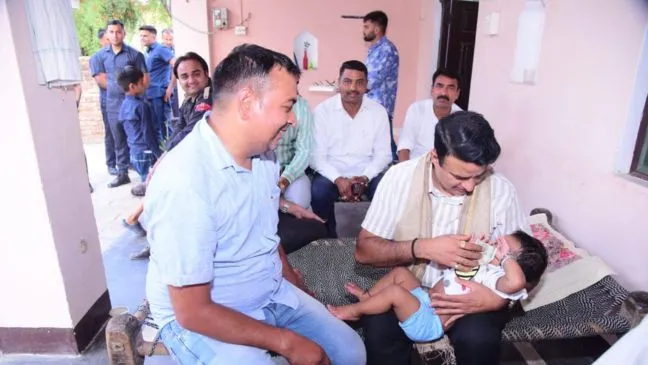Sangeet Som, a significant figure in Uttar Pradesh politics and a member of the Bharatiya Janata Party (BJP), has garnered both admiration and controversy throughout his career. Born on 1st January 1978 in Alamgir village, Faridpur, located in the Sardhana tehsil of Meerut district, Uttar Pradesh. He comes from a family deeply rooted in agriculture, with his father Thakur Omvir Singh being a prominent figure in the local community.
Index of Contents
Early Life
Growing up in rural Uttar Pradesh, Sangeet Som completed his secondary education at K.K. Jain Inter College in Khatauli, Muzaffarnagar in 1997. His upbringing in a region known for its agrarian economy and strong communal ties played a pivotal role in shaping his worldview and future political aspirations.
Personal Life
Beyond his public persona, Sangeet Som maintains a private life with his wife Preeti Som Sangeet, and their two children, underscoring the personal sacrifices and familial responsibilities that accompany his political career.
His background as a scion of a prosperous agricultural family contrasts sharply with his polarizing public image, highlighting the complexity of his identity within the socio-political landscape of Uttar Pradesh.
Political Career

Sangeet Som’s political journey began under the banner of the BJP, where he quickly rose to prominence as a leader with a staunch Hindu nationalist stance. He first entered the Uttar Pradesh Legislative Assembly in 2012, representing the Sardhana constituency (Constituency No.-44), and subsequently secured re-election in 2017, bolstering his status as a formidable political force in the region.
Controversies
Despite his electoral successes, Sangeet Som’s career has been marred by controversies, most notably his alleged involvement in the 2013 Muzaffarnagar riots. Accused of inciting communal tensions, he was booked under the National Security Act, reflecting the volatile nature of regional politics and the deep-seated communal divides in Uttar Pradesh.
The Justice Vishnu Sahai Commission’s report on the Muzaffarnagar riots placed Som at the center of its findings, attributing responsibility for exacerbating the violence that claimed numerous lives and displaced thousands. This contentious episode not only tarnished his public image but also underscored the complex interplay between politics, religion, and social unrest in contemporary India.
In addition to his legal troubles stemming from the riots, Sangeet Som faced scrutiny over his purported ties to meat processing and export businesses, despite his vocal advocacy against cow slaughter. These revelations fueled accusations of hypocrisy and opportunism, further complicating his narrative as a champion of Hindu nationalist causes.
Recent Developments and Positions

In the aftermath of the 2022 Uttar Pradesh Assembly elections, where Sangeet Som faced defeat from the Sardhana seat, questions have arisen about the future trajectory of his political career. His tenure has been marked by bold statements and controversial positions, including advocating for stringent measures against perceived threats to Hindu interests and cultural identity.
Som’s proposal to rename Muzaffarnagar to Lakshminagar sparked intense debates about historical revisionism and the assertion of Hindu symbolism in public discourse. This initiative, while resonating with segments of his political base, also drew criticism for potentially inflaming communal tensions and disregarding broader societal sensitivities.
In Conclusion, Sangeet Som’s biography encapsulates a career defined by both triumphs and controversies, underscoring the volatile and often contentious nature of Indian politics. As he navigates the challenges of a changing electoral landscape and confronts allegations of misconduct and ideological inconsistency, his legacy remains a subject of fervent debate among supporters and detractors alike.

